Focus
Your Present Location: HOME> Focus-
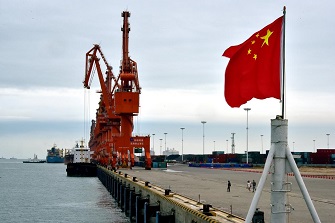
He Weiwen: Washington Misinterprets China’s System
Over the past two years, Washington has unilaterally and repeatedly imposed tariffs and otherwise pressured China based on a fundamental accusation — that China practices “state capitalism,” or statism.” The 2016 report to Congress by the U.S.-China Economic and Security Review Commission said that China had been pursuing a series of industrial policies to help its domestic companies gain an unfair advantage over their foreign competitors in the overseas market.
2020-01-20 -
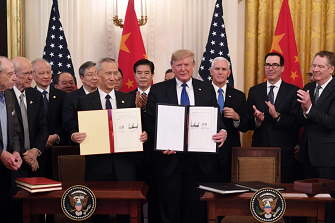
He Weiwen: Trade War Truce, But for How Long?
January 15, 2020 will be recorded in history as marking a hard-won truce in the 22-month trade war between the world’s two largest economies. The signing of the phase one agreement indicates a temporary detente, providing a relatively stable and predictable environment for the coming months — hopefully even longer.
2020-01-19 -
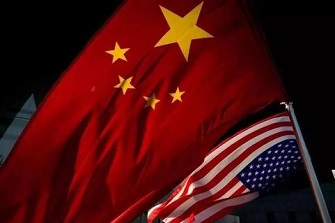
William Jones: Phase one agreement could be a phase change in Sino-U.S. relations
On January 15, U.S. President Donald Trump and Chinese Vice Premier Liu He signed the phase one agreement on trade to great fanfare. While there is still much concern that the phase one agreement is insufficient in the long run to resolve the overall trade dispute and that many of the contentious issues will have to be resolved in the negotiations for a phase two, or even a phase three negotiation, the tensions have receded. The signing of the agreement also allowed Trump to wax eloquent about his personal relationship to Chinese President Xi Jinping, whom he congratulated on achieving this agreement.
2020-01-19 -
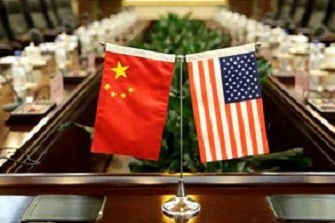
He Weiwen: What does phase one trade deal mean for China's financial market?
China and the U.S. signed the phase one trade agreement on January 15, 2020, after their on-and-off negotiations and tariff escalations that lasted for nearly two years. The phase one agreement is a hard-won achievement, indicating a temporary detente in the bilateral trade relations, providing a relatively stable and predictable environment for coming months. It also suggests a pathway for managing the two sides' differences in the future.
2020-01-17 -
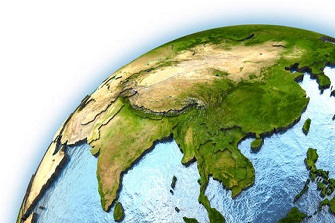
Ding Gang: Will India miss chance offered by Myanmar?
As China and Myanmar deepen relations, many Westerners believe that India's strategic room in the Indian Ocean region would be squeezed. New Delhi has a similar standpoint, thinking it should strengthen cooperation with countries in the vicinity so as to neutralize the increasing strategic presence of China in the region. Such viewpoint has influenced India's participation in the China-proposed Belt and Road Initiative (BRI), and it has actually put the two neighbors in opposite positions in a zero-sum game.
2020-01-16 -
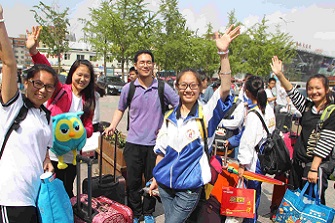
William Jones: Taking a broader look at the debate on 'human rights' in Xinjiang
The concept of human rights has a great variety of connotations about what it actually means in practice. The notion is generally accepted by all nations. But in different societies, with different forms of government and social interaction, human rights may take different forms, often as a result of cultural, social or political differences.The United States has often attempted to present itself as the "arbiter" of human rights.
2020-01-15 -
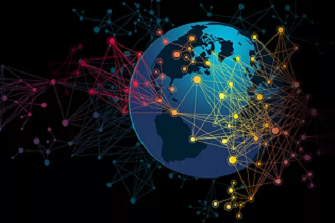
Wang Wen: Eastern mind-set foretells global future
The theme of this years' Raisina Dialogue is quite postmodern - "21@20: Navigating the Alpha Century." What does it mean? There is no explanation in the agenda. But according to the theme of each panel discussion, I assume the organizers of the forum might think the year 2020 is the starting point of the 21st century and marks the end of the 20th century, and what's coming next will be like the first letter of the Greek alphabet - Alpha - which signals a new era.It is a theme designed with oriental imagination. It wisely responds to the global logic that has been misled by Western mind-set for 30 years.
2020-01-14 -
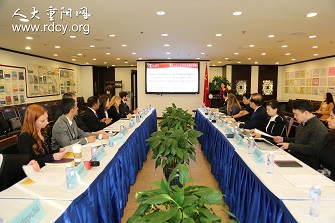
MBA delegation of University of St. Thomas visits Chongyang Institute for Financial Studies at Renmin University of China
2020-01-13 -
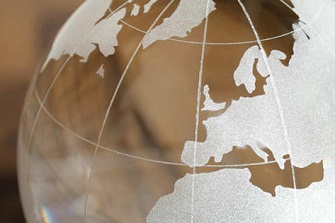
Liu Zongyi: Egalitarian security architecture can help stabilize South Asia
In 2019, there were major changes in the traditional and non-traditional security situation of South Asia. Tensions between India and Pakistan over Kashmir continued and the possibility of an armed clash remained quite high. The geostrategic confrontations in South Asia and the Indian Ocean region are intensifying.The situation in Afghanistan is deteriorating.Overall, the security situation in South Asia is getting worse, which does not bode well for the region's economic development. But there are mainly three possible solutions to improve the situation.
2020-01-13 -
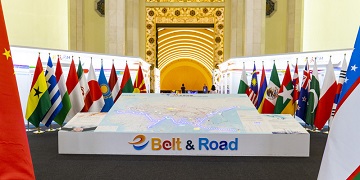
Ding Gang: Old mind-set distorts West’s view of BRI
A typical Western view of the countries engaging in the BRI is that these states are attracted to China's money. What matters is not whether the BRI is part of China's strategy, but that it can stimulate and promote the development of countries along the route. Development is the first priority. In the current globalization process, development requires cooperation as well as infrastructure construction.Why are countries along the BRI willing to approach China? This is the crux of the matter.
2020-01-09 -
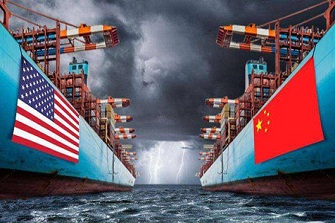
Zhao Minghao: Toward Philosophical Coexistence
China and the United States will sign a phase one trade deal this month, an important step forward in their attempts to ease tensions. Their trade negotiation teams have made great efforts to this end. Needless to say, responses to the agreement have been mixed, and there are some criticisms both in the United States and China. However, this only shows that the final agreement has a certain balance, and it definitely cannot satisfy everyone. The two sides have achieved a necessary compromise.
2020-01-08 -
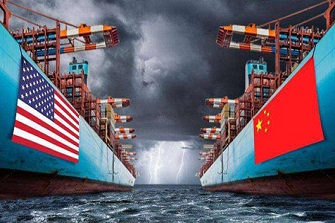
Zhao Minghao: Toward Philosophical Coexistence
China and the United States will sign a phase one trade deal this month, an important step forward in their attempts to ease tensions. Their trade negotiation teams have made great efforts to this end. Needless to say, responses to the agreement have been mixed, and there are some criticisms both in the United States and China. However, this only shows that the final agreement has a certain balance, and it definitely cannot satisfy everyone. The two sides have achieved a necessary compromise.
2020-01-08 -
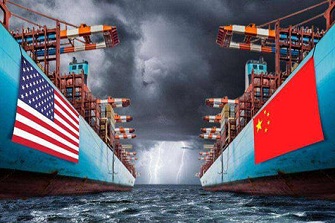
Zhao Minghao: Toward Philosophical Coexistence
China and the United States will sign a phase one trade deal this month, an important step forward in their attempts to ease tensions. Their trade negotiation teams have made great efforts to this end. Needless to say, responses to the agreement have been mixed, and there are some criticisms both in the United States and China. However, this only shows that the final agreement has a certain balance, and it definitely cannot satisfy everyone. The two sides have achieved a necessary compromise.
2020-01-08 -
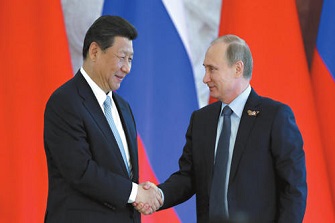
Huang Renwei: Where Are China-Russia Relations Heading?
China officially refers to its relationship with Russia as a comprehensive strategic partnership of coordination. The two countries do not simply pursue military or security cooperation but work for comprehensive cooperation, especially in economics. There are two main trends in the future development of China-Russia relations. One is that economic cooperation is becoming deeper and more comprehensive; the other is that the two countries will work to keep the international order stable in opposition to unilateralism.
2020-01-08 -
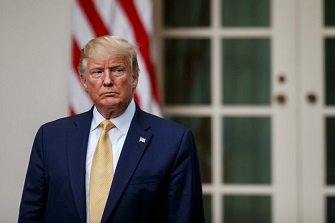
William Jones: Trump begins a slippery slope with assassination of Soleimani
U.S. President Trump's unfortunate decision to follow the advice of his neoconservative advisers to assassinate Qasem Soleimani has placed the world on the slippery slope towards war and chaos – and not only in the Middle East. While Soleimani was reviled in the West for his role in terrorism, he was highly revered by the Iranian people as a fighter for Iran going all the way back to his service in the Iran-Iraq War. Those demonstrations some weeks ago protesting the economic conditions in Iran, which Secretary of State Pompeo and others were lauding as the beginning of a more pro-Western opinion, have now been replaced by millions out in the street mourning their fallen leader.
2020-01-07 -
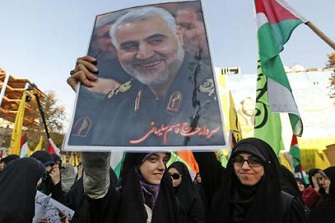
Wang Wen: Global efforts needed to restrict US adventurism
An Iranian friend of mine asked me what I thought about the killing of Qasem Soleimani, commander of Iran's elite army Islamic Revolutionary Guard Corps by a US drone strike in Iraq the day after Soleimani's death. I answered without hesitation - this is an act of state terrorism. There was no trial, no Congress authorization, no public debate, and the US simply killed a senior official of a sovereign country by arbitrary use of force and accusations from its hegemonic discourse power.
2020-01-07 -
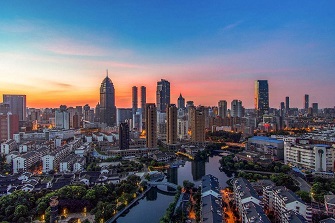
He Weiwen : 4 years of Yangtze River Economic Zone: A development demonstration
The Yangtze River Economic Zone covers 11 provinces and municipalities, accounting for more than 40 percent of the country's population and its total GDP. They include the Yangtze River Delta, which accounts for 21 percent of China's total GDP, the Middle Range of the Yangtze River, and Chengdu-Chongqing Conglomerate in the Upper Range. It has been consistently gaining economic weight in the country over the past four years, accounting for 45 percent of China's total GDP in 2018, compared to 40.9 percent in 2012.
2020-01-06 -
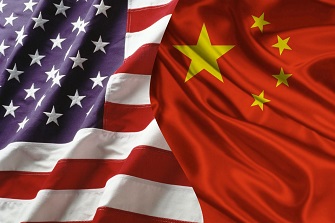
He Yafei: Major Power Competition and Cooperation
Only a few major powers exist at any given time in human history. In today’s world, probably the U.S. and China are truly major powers, followed by Russia, Japan, the European Union, India, Brazil, Turkey, Indonesia and others in different tiers. But it is the U.S.-China relationship that will primarily determine the future of the world.Competition is normal and cooperation is necessary for world peace and economic progress.Competition is normal and cooperation is necessary for world peace and economic progress.
2020-01-06 -
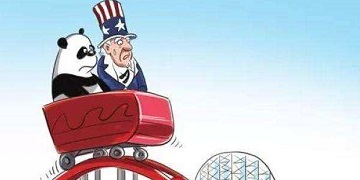
Ding Gang: China, US decoupling not a certainty in 2020
During the last night of 2019, when joyful people in the Big Apple cheered as the Times Square Ball dropped, they must be expecting the NASDAQ screen to display more exciting data in the new year. People in Beijing also don't know where China-US relations are heading, despite that the phase one trade deal seems to have been fixed. Many years from now, when people recall 2020 perhaps they will find that as people from both countries were striving for their own countries' development, they were getting close, rather than drifting apart.
2020-01-02 -
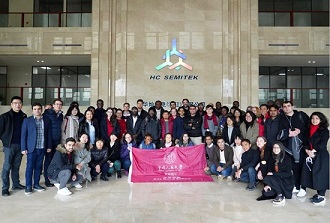
Wang Wen: Small cities offer better insight into China
After visiting Yiwu in East China's Zhejiang Province, with more than 50 international students from over 30 countries studying at the Silk Road School, Renmin University of China, I found that a tour of a small city helps foreigners understand China better. Before the visit, most of these international students could hardly imagine that Yiwu, which could not rank among the top 200 Chinese cities in terms of the population or size, is known as the world's small commodity capital. The entire city is like a mega supermarket and there is nothing one cannot buy there.
2019-12-31
























































































 京公网安备 11010802037854号
京公网安备 11010802037854号





